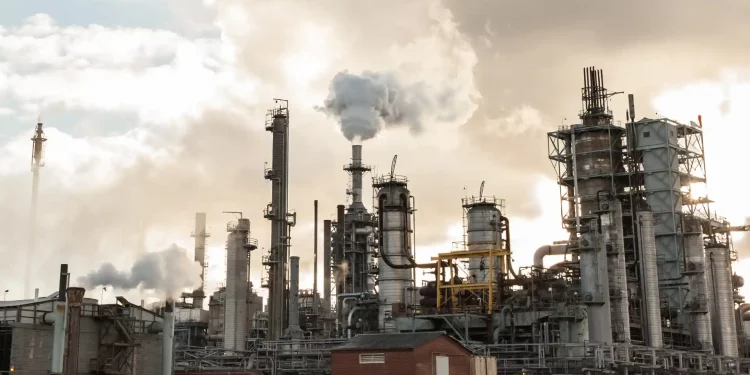The United Nations Environment Programme report found that the planned increase of the top 20 countries will result in the production of 460% more coal
The present estimates convey that by 2030, the United States will surpass Saudi Arabia and Russia in terms of oil and gas production. The United Nations issued a warning that such an expansion in the oil and gas industry by major oil-producing countries will push the world’s target 1.5C global warming limit undertaken in the Paris deal.
As per the United Nations Environment Programme (UNEP) Production Gap report issued this midweek, the aforementioned nations are the world’s non-renewables behemoth and are taking rapid steps to increase production by the end of this decade up to double the amount of crude than the allowed global warming’s limit.
The report highlighted that the production targets of the top 20 fossil fuels-producing countries comprising the United States, Russia, Australia, China, Saudi Arabia, and the COP28 host United Arab Emirates are going in the opposite direction. This widens the gap between the world leaders’ commitment to global warming and their on-ground actions.
These oil and gas leading producer nations had promised to achieve a target of ‘net-zero’ emissions by 2050. This target was attached to the commitments made in the Paris Agreement to curtail global warming by almost two degrees Celsius (2.7 degrees Fahrenheit).
The report found out that the governments that made commitments have signed upon plans that would produce 110% more fossil fuels in 2030 than that would not breach the 1.5C threshold and 69% more than what is required to maintain under 2C.
Inger Andersen, the Executive Director of UNEP, said that the government’s plans of increasing oil and gas production are sabotaging the shift towards renewables to achieve the net-zero emissions target, which is also threatening the future of humanity. He urged that in the upcoming COP28, these nations come forward and collaborate to appropriately transition out coal, oil, and gas to other sustainable sources of energy for the betterment of every human being and this planet.
Carbon emissions from the usage of fossil fuels like coal, oil, and gas are certified as the main contributors to global warming, which is also one of the reasons for the increased frequency of natural calamities like heat waves, flooding, wildfires, rising sea levels, etc.
Despite every country signing the Paris Agreement back in 2015, none of them have been willing enough to pick up these issues during global climate negotiations. Even the agreement didn’t conduct talks as to how the targets would be achieved.
Major Pollutants
The UNEP report found that the planned increase of the top 20 countries will result in the production of 460% more coal, 82% more gas, and 29% more oil than the limit decided to maintain the 1.5C limit. These 20 countries produce 82% and consume 73% of the global fossil fuels supply.
The UNEP said that China is the largest polluter of all due to the production of half of the global supply of coal, which happens to be the most polluting of all. It is also the world leader in renewable energy and aims to become carbon neutral by 2060.
Fake promises
In the COP26 at Glasgow, countries committed to ‘phase-down unabated coal power’. Abated means to capture carbon before it’s released into the atmosphere.
UNEP applauded it as a significant milestone, but surprisingly, the production and consumption of fossil fuels have reached record-high levels since the promise.
The COP28 host, UAE, also doesn’t have any policies in place to aid the planned reduction of its fossil fuels. Instead, the state-owned ADNOC is putting in $150 billion to enhance its production capacity by 2027.
The lead author of the report, Ploy Achakulwisut, said that these countries have used the Ukraine conflict as a staircase to escalate their fossil fuel production. She warned that a more sustainable solution is required for the transition to clean energy.


















